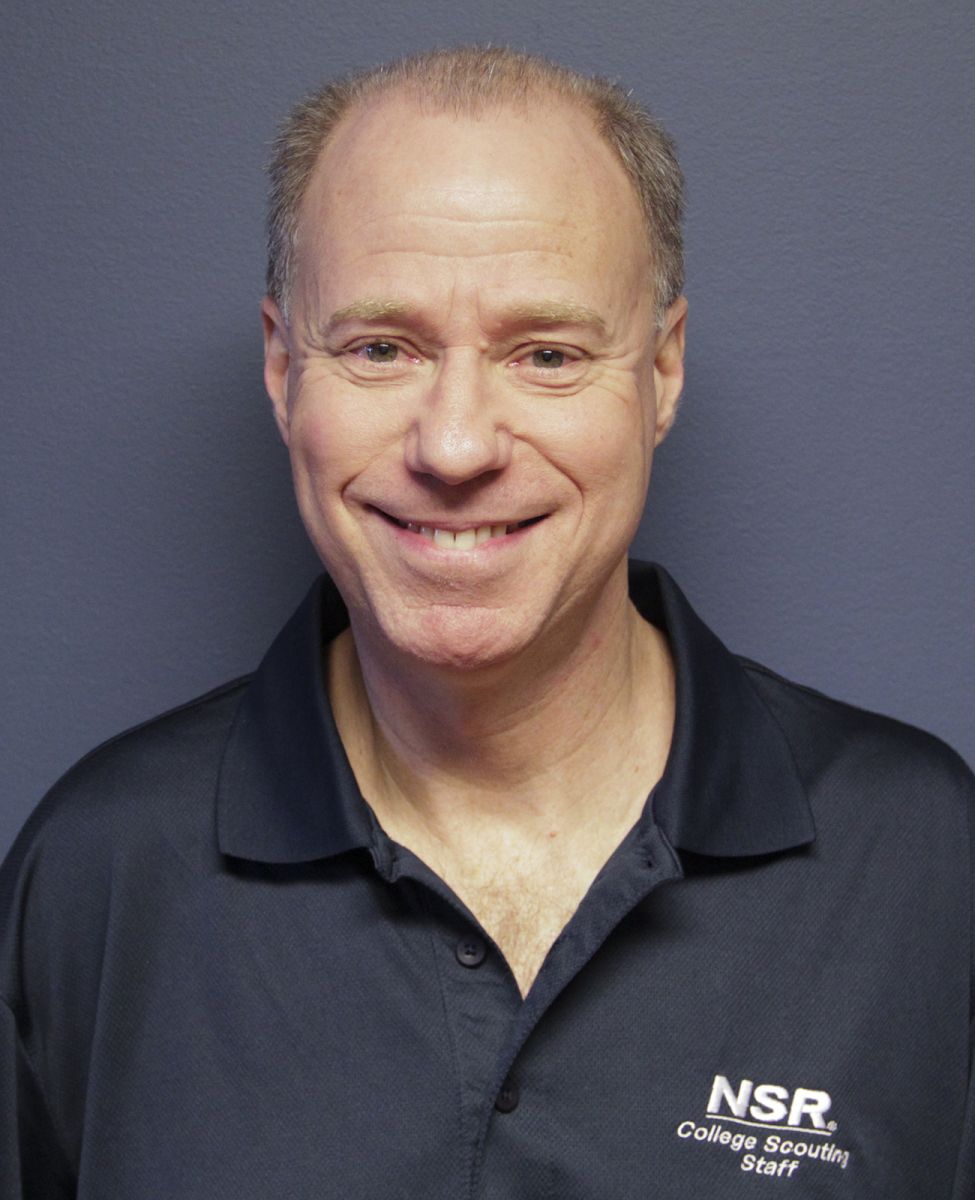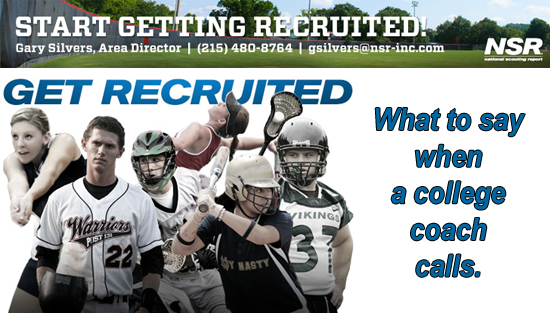- Log in to post comments
The following article is sponsored by National Scouting Report. Visit NSR’s web site at nsr-inc.com
RECRUITING BLOG: WHAT TO SAY WHEN A COLLEGE COACH CALLS
By Gary Silvers
You answer: “Hello.”
The caller responds: “Hello, (Name), this is Coach (Name) from (Name) University. How are you doing?”
You respond: “Good.”
That’s it. One-word answer. That’s all you have to say?
Try this: “Hey, Coach, I’m doing great. How are YOU doing?”
Sound better?
First impressions mean everything to a college coach. You never get a second chance to make a good first impression.
If you don’t know what to say to a college coach, you better learn quickly, especially if you are a high school junior or senior.
Coaches in many college sports have been permitted to call juniors since the beginning of the school year. Football coaches are permitted to call one time through May 31 and once a week beginning Sept. 1 of the senior year. Coaches in other sports are allowed to start calling July 1 after the junior year.
What are you going to say when they call?
Practicing good phone skills can be critical to a college prospect’s success in recruiting. That’s right, practice. In the infamous words of Allen Iverson: “We’re talking about practice. Not a game. Practice.”
When you are alone, pretend you’re having a phone conversation with a college coach. Think about things you can ask the coach and how you might respond to the coach’s questions.
No, that’s not creepy. You practice for exams by studying. You practice for speeches, concerts, plays and recitals by rehearsing. You practice driving a car before taking your driver’s test. You practice for your high school and club teams.
 Why is practicing phone skills any different?
Why is practicing phone skills any different?
The last thing college coaches want to hear is one-word answers. They don’t want to carry on a conversation by themselves. They can do that without calling you. You are trying to build relationships with them. You need to answer questions in complete sentences and ask some of your own.
First and foremost, you need to be polite, sound intelligent and exude confidence. Coaches don’t want to recruit unintelligent, inarticulate wallflowers. They are looking for bright, confident, well-spoken leaders.
Second, you need to do your homework. No, I’m not talking about English, Math and Social Studies. I’m talking about researching the coaches, teams and colleges you are seriously considering. That way, when a coach calls, you can carry on a conversation.
Ask the coach about his background and coaching style. Ask the coach about his team’s success and its goals. Ask the coach about his players and future roster openings.
Talk to the coach about yourself, your interests and why you would be a good social fit for his team. Talk to him about your sport, your passion for it and why you would be a good athletic fit for his team. Talk to him about your classes, your intended college major and why you would be a good academic fit for his school.
Finally, ask the coach about the next steps in the recruiting process. Ask him if he has all the information and video he needs to evaluate you. Ask him if or when he plans to watch you play. If you’re really interested, ask him if or when you can visit his school.
How do you end the conversation?
Try this: “Thanks for calling, Coach. When can I expect to hear from you again?”
He will be so impressed!
High school student-athletes who are not receiving calls from college coaches are not being recruited. National Scouting Report, the world’s oldest and largest high school scouting and college recruiting organization, can change that. With its 18-phase national exposure program and thousands of college contacts, NSR boasts a 95-percent success rate helping qualified prospects connect with college coaches and earn scholarships. For a FREE consultation, call or email Area Director Gary Silvers at (215) 480-8764 or gsilvers@nsr-inc.com. For more information, visit NSR’s web site at nsr-inc.com/athletes.


